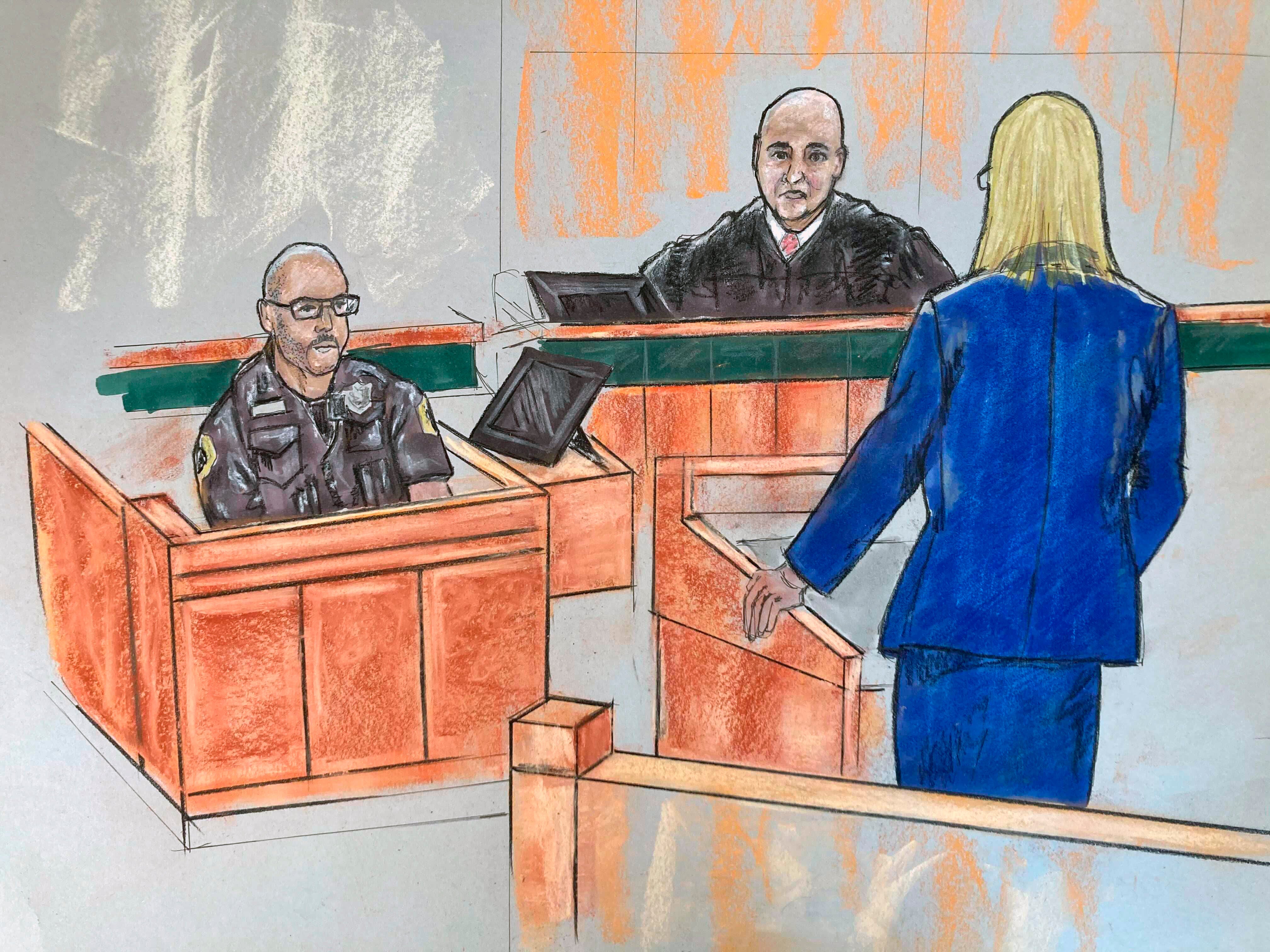Newspaper gunman was calm, quiet, even joked after arrest
Police say the man who killed five people at a Maryland newspaper was calm, cooperative, did not seem confused and even joked about an erroneous media report following his arrest during interrogation

Your support helps us to tell the story
From reproductive rights to climate change to Big Tech, The Independent is on the ground when the story is developing. Whether it's investigating the financials of Elon Musk's pro-Trump PAC or producing our latest documentary, 'The A Word', which shines a light on the American women fighting for reproductive rights, we know how important it is to parse out the facts from the messaging.
At such a critical moment in US history, we need reporters on the ground. Your donation allows us to keep sending journalists to speak to both sides of the story.
The Independent is trusted by Americans across the entire political spectrum. And unlike many other quality news outlets, we choose not to lock Americans out of our reporting and analysis with paywalls. We believe quality journalism should be available to everyone, paid for by those who can afford it.
Your support makes all the difference.The man who killed five people at a Maryland newspaper was calm, cooperative, did not seem confused and joked about an erroneous media report following his arrest during an interrogation, police testified Wednesday at a trial to determine whether Jarrod Ramos was legally sane at the time of the attack.
Prosecutors focused on Ramos’ behavior in video recordings shown in court on the trial's second day. The recordings included excerpts from his eight-hour interrogation, which shows Ramos initially unresponsive to questions but later joking with an interrogator about an erroneous news report.
Officer Wesley Callow, the Annapolis police officer who discovered Ramos with his legs sticking out from under a newsroom desk at the Capital Gazette described him as very calm as he followed instructions during the arrest.
While Ramos often kept quiet, he maintained eye-contact and responded to questions, Callow testified, as Anne Arundel County State's Attorney Anne Colt Leitess asked him about body-camera footage shown to jurors.
Attorneys also questioned Anne Arundel County Police detective Kelly Harding about Ramos' behavior during his interrogation.
Defense attorneys are contending that Ramos, who already has pleaded guilty in the slayings, is autistic and has multiple mental health disorders. They are arguing that while he did commit the murders he should not be held criminally responsible due to mental illness.
During his interrogation, Ramos did not show any repetitive or unusual behavior, Harding testified under cross-examination by David Russell, a prosecutor.
Russell noted a point in the interrogation where Harding was trying to get Ramos to say why he attacked the newspaper, and she said authorities also have issues with media reporting. Harding asked Ramos about an erroneous report in the hours after the shooting that he had mutilated his fingers to prevent authorities from taking fingerprints.
“Where do they come up with that stuff?" Harding asked Ramos, who laughed and questioned whether Harding or a law enforcement colleague in the room was the anonymous source who provided the information.
“He's able to make that joke with you?” Russell asks.
“Yes,” Harding said.
Ramos also explained food allergies he has and calmly asked for a cheeseburger from Wendy's, which was brought to him during the interrogation.
Separately, the judge in the case criticized a defense attorney, Matthew Connell, after a mental health expert appeared to be reading from a script while answering his questions in court. After sending the expert and the jury out of the room, Judge Michael Wachs discussed the issue with attorneys.
“Why do two of you have matching identical documents?” Wachs asked Connell, adding: “You’re walking a real fine line, Mr. Connell.”
Prosecutors requested her testimony to be stricken. The judge later allowed Dr. Joanna Brandt, a psychiatrist, to return to offer limited testimony about mental health disorders and not criminally responsible cases.
At the end of court Wednesday, Judge Wachs said it remained an open question whether he would strike Brandt's testimony.
In large measure, the case will involve testimony from mental health experts called by the defense and prosecutors.
Defense attorneys say Ramos believed he was being intentionally persecuted after the newspaper wrote about a case in which he pleaded guilty to harassing a former high school classmate. Ramos also thought the courts were unfairly rejecting his defamation case against the newspaper, his lawyers say.
Under Maryland’s insanity defense law, a defendant has the burden to show by a preponderance of the evidence that he is not criminally responsible for his actions. State law says a defendant is not criminally responsible for criminal conduct if, because of a mental disorder or developmental disabilities, he lacked substantial capacity to appreciate the criminality of his conduct.